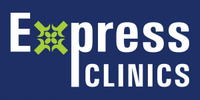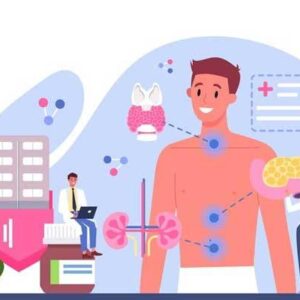Express Pro Health Comprehensive @ Rs. 20,999 (92 Parameters)
 To Buy Instantly Scan QR code and call us at 1800-267-9191
To Buy Instantly Scan QR code and call us at 1800-267-9191
“Express Pro Health Comprehensive” package is instructed for grown-ups who are above 35 years old once a year. This Express pro health comprehensive keeps you all around educated about any short or long chronic medical problems and takes into consideration preventive healthcare before any health condition gets chronic and life-threatening. Express Pro Health Comprehensive package covers 92 test parameters including 5 consultations that highlight being the inclusion of CT Coronary Angiography.
Express Pro Health Comprehensive – Test Parameters
PATHOLOGY
Thyroid function tests are a series of blood tests used to measure how well your thyroid gland is working. Available tests include the T3, T3RU, T4, and TSH.
PSA (Prostate-specific antigen) is a protein produced by normal, as well as malignant, cells of the prostate gland. The PSA test measures the level of PSA in a man’s blood.
DIAGNOSTICS
As our age increases there is always some bone loss and it is more common in women. This age related bone loss is called as osteoporosis. Due to osteoporosis, bone loses its strength, which is the main cause of fractures in old age. Checking of BMD helps us to assess the degree of bone loss and to give appropriate treatment to the patient so that fractures can be avoided. This is one of the essential tests in preventive health checkup.
CONSULTATION
MD Physician: A physician, medical practitioner, medical doctor, or simply doctor is a professional who practises medicine, which is concerned with promoting, maintaining, or restoring health through the study, diagnosis, prognosis and treatment of disease, injury, and other physical and mental impairments.
Cardiologist Consultation: Cardiologists are the specialists who diagnose, treat and prevent diseases that mainly affect the heart and blood vessels. They treat ongoing, long-term illnesses or will respond to emergency, potentially life-threatening situations. Some of the diseases include high blood pressure, angina, heart disease, heart failure, cardiac arrest and coronary heart disease. Cardiologists develop their role in areas of sub-specialty interest, such as: interventional, electrophysiology, transplant, cardiac imaging, and heart failure, pediatric
Detailed reports about your test parameters.






